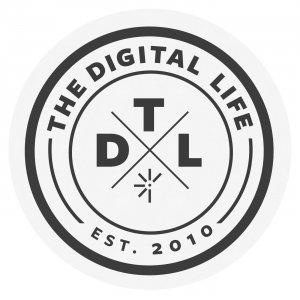The Digital Life

Automating America
Jon: Welcome to episode 112 of The Digital Life, a show about our adventures in the world of design and technology. I'm your host, Jon Follett, and with me is founder and co-host, Dirk Knemeyer.
Dirk: Greetings, Jon.
Jon: This week I think we should talk about what I consider a concerning trend, if not maybe even a disturbing trend, which is the growing contractor economy, as typified by Uber and, to a lesser extent Airbnb, and then the signals from the American middle class that that group is getting squeezed and might be in real trouble. On the one hand, we have this digital innovation, very relevant to the Digital Life, and, on the other hand, we have the American middle class, which has been the backbone of the economy for so long, and there's this squeeze on. I know it's not directly necessarily related to the rise of Uber and other such services, but there's definitely a confluence of events here that I think is cause for notice, if not cause for concern. With the presidential elections starting to heat up in this country, we've got at least one presidential candidate, Hillary Clinton, of course, who is making some hay about this, talking about these digital services and the American middle class as potentially being at least on its face incompatible.
I wanted to dig into that a bit today, and talk about automation and the future of work, and really the future of meaningful work, as we use technology to put into place systems that are going to be taking care of a lot of things that in previous generations would have been done by people. Dirk, what's your take?
Dirk: Yeah. I'm going to go up a number of levels, and take a super big picture cut at this.
Jon: Go for it.
Dirk: Once upon a time, it was necessary for people to work in order to create the things that they needed to subsist. If they didn't work to create those things, they would be incapable of subsistence. We are today at a point where machines make it ... If you throw out the capitalism part, and throw out the fact that the money and thus the power is not distributed evenly, so you've having to try to get more of it to pay for things, but the technology and the infrastructure exist so that we no longer need everyone to work for our subsistence. The combination of human capital and technology make it so that subsistence is less than everyone working.
Now we're all working either to provide luxuries on top of subsistence, or just to keep this structure, the capitalist economic structure, going. This is a giant evolutionary arc, and where we're heading, the things like Hillary Clinton's talking about, the idea of people are going to contractors. It's clear that the old model is breaking down and changing. Those are all steps toward our not needing to work for subsistence or luxuries. It's getting to the point where it will be well less than a hundred percent of human capital on top of technology required to provide everything that we would want or need.
The result of that is that people literally don't need to have jobs. They don't need to work, other than to make money, other than to accumulate power and leverage within the society most locally, or civilization more broadly. We're approaching a time where the world could shift in really massive ways, because it's simply not required for people to work to create the things that are needed to keep life going. The question is what then? One of the byproducts of work, and I've mentioned this I think in passing on other shows, but I don't think we've gotten into it too deeply. One of the byproducts of work is a form of social control, so if I'm working, I can't be getting drunk, because I don't have anything to do. I can't be sleeping with the neighbor's wife. I can't be doing things that are potentially destabilizing to social systems of people cohabitating in modern civilization.
The question is how is that going to shake out? As we reach a point, and it's coming. It's decades,






 Visit Podcast Website
Visit Podcast Website RSS Podcast Feed
RSS Podcast Feed Subscribe
Subscribe
 Add to MyCast
Add to MyCast